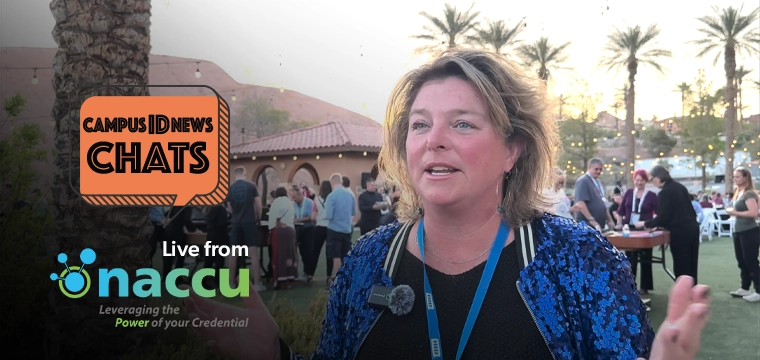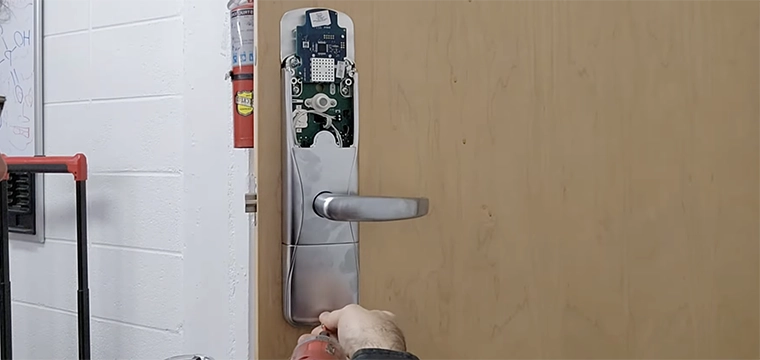 Like the old Greyhound bus slogan, “Leave the driving to us,” many universities offering campus card payments at off-campus merchants are finding it more cost effective and efficient to let someone else handle that side of the business. Universities, after all, aren’t merchant acquirers or payment processing companies.
Like the old Greyhound bus slogan, “Leave the driving to us,” many universities offering campus card payments at off-campus merchants are finding it more cost effective and efficient to let someone else handle that side of the business. Universities, after all, aren’t merchant acquirers or payment processing companies.
And when they have a company like Blackboard already entrenched on their campus, an expansion move is a natural. Evidence of this trend – at least from Blackboard’s perspective – can be found in the company’s recent announcement that 12 more universities have opted to have Blackboard manage their off-campus card businesses.
Blackboard has more than 300 clients using its Transaction System, which is part of the Blackboard Commerce Suite, said Dan Gretz, senior director of operations for BbOne, the company’s on- and off-campus university card management program.
The newest BbOne additions include:
“BbOne is designed as a complete outsourcing system. We extend the functionality of their ID card to off campus merchants. As part of that outsource, we work with the university to design a target list (of possible merchants),” said Mr. Gretz.
“To maximize the success of off-campus services it is important to have a well established flexible spending account that has become a popular service option with the student population,” added Tom Bell, vice president for industry relations for the Blackboard Transaction System.
 Clemson grows a successful off-campus program with BbOne
Clemson grows a successful off-campus program with BbOne
Clemson University, South Carolina, went with BbOne last August. “Our goal was to have it fully operational by the end of the semester, but it was operational by mid-semester,” said Steve Robbins, director of information technology services for Clemson’s Division of Student Affairs.
“Things have gone exceptionally well. The response from students has been very positive,” he added. By letting Blackboard handle the off-campus program, it allowed the university “to focus on our resources. Blackboard recruits the merchants, supports the merchants, and make sure they are settled.”
While Clemson went directly to BbOne when it started its off-campus program, some universities initially tried to manage it themselves.
“In the case of George Washington University, the campus had a thriving program that (was becoming) too big for them to manage,” said Mr. Gretz. “They had 50 merchants and a waiting list of 75 merchants who wanted to join the program.”
At Clemson, “we currently have 21 merchants but we are always looking for more. We probably have five or six in negotiations right now,” said Bill McGee, associate director for the university’s card program, Tiger 1.
With Blackboard handling most merchant dealings, it does relieve the university of extra work. Explained Mr. Gretz: “We meet with the merchants to execute a card processing agreement. We then deploy the hardware to those merchants and we provide 24-hour support. Like Clemson and other clients, when a school contracts with us to run their off campus program, it’s a turnkey solution. They’re not involved in supporting that hardware or reimbursing the merchant, another time consuming step. We automate that for them and settle with merchants on a daily basis.”
“We really mimic the bank card world, concerning settlement, reconciliation, the detailed record,” added Mr. Gretz.
He said that universities can settle with merchants themselves if they want. Merchants can also purchase the needed hardware, if they so desire. Though he would not disclose the fee amount, he noted, “it is similar to what merchants are already used to (paying for debit and credit card acceptance).” And, “the university shares in the fee; it is a revenue generating opportunity so they get a percentage of the discount rate which varies by the size of the community.”
More about Clemson’s Tiger 1 Card
Clemson’s 16,500-plus students and more than 4,000 employees have access to Tiger 1. The university’s “declining balance” program, known as the TigerStripe account, carries pre-deposited funds that can be used on and off-campus, said Mr. McGee.
“Clemson houses 6,500 students which means a lot of students commute daily, so we’re now strengthening the program to allow them to do off campus what they can do on campus,” said Mr. Robbins.
Since the Tiger 1 with the TigerStripe option isn’t an actual credit card–students can only spend what they or their parents have deposited into their account–the declining balance account protects both groups against “overzealous spending” by students, said Mr. Gretz. “We’ve all seen articles on student spending. With this discretionary spending account, it creates a budgeting tool. Parents depositing funds have the option of setting up regular deposits. Anything the student might need for daily living expenses can be purchased using their card.”
There is a $500 per day deposit limit. “We’re not a bank,” said Mr. McGee. “Once funds are deposited they are only refundable on graduation or on transfer from the university.”
Students or parents can also make deposits online, call the college office or mail a check to Clemson, enabling cardholders to deposit funds in many ways.
“The (TigerStripe account) funds reside online,” said Mr. McGee, “not on the card. This promotes more security. If the student loses his card, we can deactivate it.”
One of the main reasons the college went off-campus was the same reason that many universities cite: “Each year, during orientation, we had many requests from parents and students to take the card off campus,” said Mr. McGee. When the university finally took that step last fall, students and parents were notified in a variety of ways–e-mails, flyers, a brochure.
BbOne makes the grade at Clemson
The college’s short-term goal for the program “is to see 50-60 merchants participating. With the interest we have, that will be achievable in the coming year,” he explained.
Some of the merchants now accepting Tiger 1 include a grocery store, pizza places, sandwich shops, clothing stores, a graphics/printing operation, a sushi restaurant, ice cream shop dry cleaners. “We have a broad range of offerings,” said Mr. McGee. “Most of them are close (to the campus), the farthest one is 10 miles out.”
BbOne has been “very well received by our students, student government, and parents since our launch in October. We’ve only had positive responses and now community merchants have more of a connection to the university,” concludes Mr. McGee.
Additional resources:
To visit Clemson’s Tiger 1 Card Office on the web, click here.
To learn more about BbOne on the web click here.




